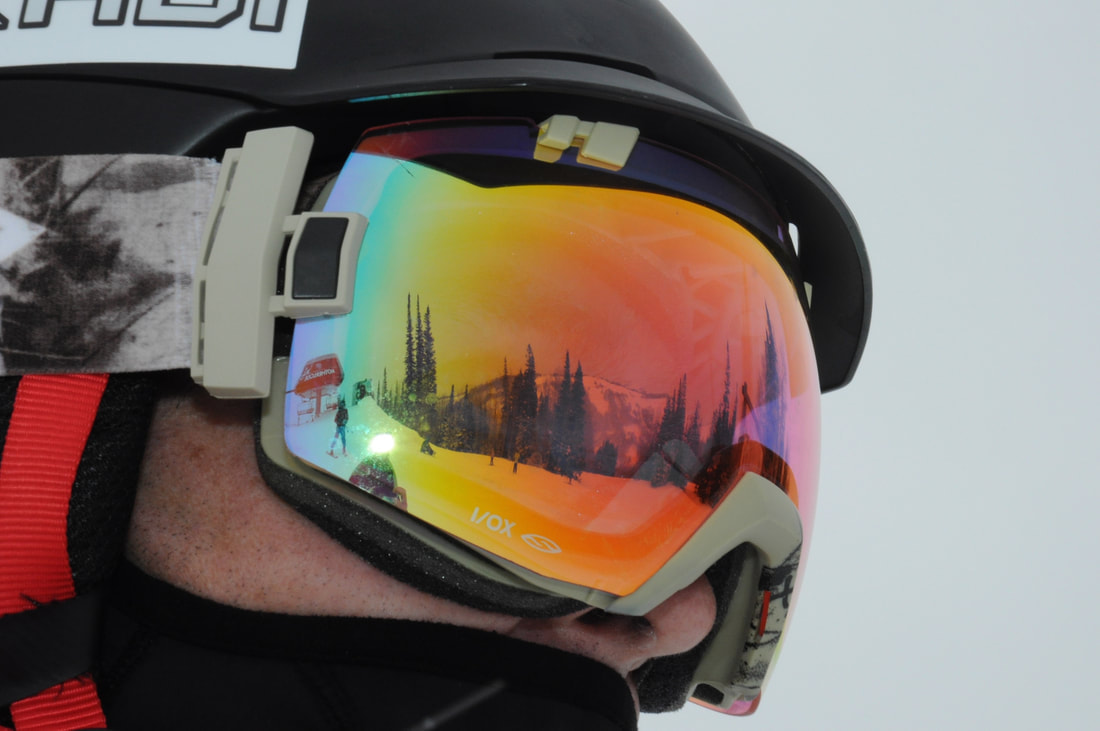|
A while ago I wrote about finding myself outside my comfort zone on a reccie trip with some colleagues. We were white water canoeing, something I’d never done before. It was something I found quite challenging, but a rewarding learning experience.
Learning new skills in outdoor education is a great way to keep things interesting and expand your skill set. However, what happens with something you’re very experienced in? Should you be practising it outside of work? Is what you do on the job enough practice for something at which you’re good? Snow skiing is something I’ve done since I was 5 years old and an industry I’ve worked in for around 7 years. In terms of outdoor skills, I can safely say, snow skiing is my strongest one. However, despite this experience, I still have plenty to learn and so much more upon which to improve. However, it’s not until your skills are actually put to the test, that you realise just how much more there is to learn and why it’s so important to continually up-skill. Recently I spent a couple of weeks overseas skiing, as it’s been a number of years since I’ve done an entire season of work at the snow. When doing seasons, you have the time to truly build your skill-set and challenge yourself in so many different ways. However, it’s surprising how quickly you lose some of your finer skills when the season’s over. Getting back on skis for the first time in a year is always an interesting experience. I love the sound of the boot clicking into the binding, fixing my helmet and lowering my goggles ready to jump on the lift. However, despite having skied many double black diamond runs over the years, I’m not going to head for the highest peak and fang it down the most hectic run as fast as I can, launching off everything I can find. No, that would be idiotic. Instead, I like to find a nice green or blue trail to run up and down to warm up and get a feel for everything again. I’ll probably spend an entire day doing this. When I’ve had a chance to get my balance back and regain the feel for my skis, I’m ready to start rebuilding my deteriorated skill set that time has eroded. With any outdoor skill, you’ll reach a point where you’re highly competent and things will come back to you quickly. However, without practice, similar to physical fitness, all these hard skills, deteriorate over time. For an instructor, this deterioration is not good and can come from both lack of practice, or only operating at a much lower level of intensity. If for example I was with a group skiing day in and day out, as is often the case for experienced instructors of any outdoor activity, I might just be cruising all the time on green or blue runs to match the level of ability of the group. However, cruising can lead to complacency and dull your senses to the wider challenges and risks of the activity that you’re leading. To avoid complacency, often called an expert blind spot, you must therefore continually practise and test your own skills at a much higher level to ensure you’re prepared for any contingency. You never know when you’ll need to quickly switch up from cruising instructor to rapid situational risk assessor and responder. For me, this realisation came when I took a ‘short-cut’ on Whistler Mountain. I wanted to get to the furthest section of the mountain and I could see the lift to where I wanted to reach. I’d been skiing along the top of a ridge line, on a blue home trail. However, I saw what appeared to be a nice descent into the next valley and onto the lift. It was soft and powdery to begin with, but suddenly, on my right appeared a cliff and in front of me was a massively steep chute littered with rocks. Most skiers have a home mountain, which they know like the back of their hand. For me this is Thredbo and so I can criss-cross it all day knowing where my random short cuts will take me. However, again this home mountain confidence can lead to complacency and over-confidence in other situations. Practising your skills on different mountains however, and getting into situations such as I did, is a real reminder of how aware and vigilant you need to be in the outdoors. Rather than panicking, as I stared down the incredibly steep descent, I quickly dug in and attacked the chute, swiftly switching back and forth one sharp turn after another to control my descent, whilst avoiding the jagged rocks protruding from the snow. With a few crunching sounds from under my skis, I cleared the worst of it and glided out the bottom into a wide open section of deep soft snow. Glancing back up, I could now see the insanity of the ‘short cut’ in all its glory. Let’s do that again! I thought… Whilst this wasn’t an ideal situation in which to find myself, the ability to switch up to a higher level of thinking and respond swiftly is an important thing to be able to do with any of your outdoor skills. This requires practice and pushing your own limits outside of your regular work. Whilst you’d never take a group with you into a situation like this, this sort of experience reminds you of the risks that are inherent with an activity such as skiing, as well as the need to continuously build and improve upon your own skills. Expertise does lead to complacency and as outdoor educators and instructors we need to practise our own skills and be reminded that there are always limits to our experience and expertise. This helps us to be aware that there are always going to be risks involved and that we must eliminate, manage or mitigate those risks for our programs. However, if we don’t practise and test our hard skills outside of work, the chances are, your comfortable daily operations will become increasingly exposed to potential complacency as the instructor skill-sets deteriorate and activity risks don’t appear as dangerous as they really are. To help resolve my over confidence and need to rebuild my alpine skill set, it was time for me to go back to ski school and take some lessons again.
0 Comments
Your comment will be posted after it is approved.
Leave a Reply. |
AuthorWrite something about yourself. No need to be fancy, just an overview. Archives
April 2021
Categories
All
|
Copyright Xcursion Pty Ltd 2015-2023


 RSS Feed
RSS Feed


